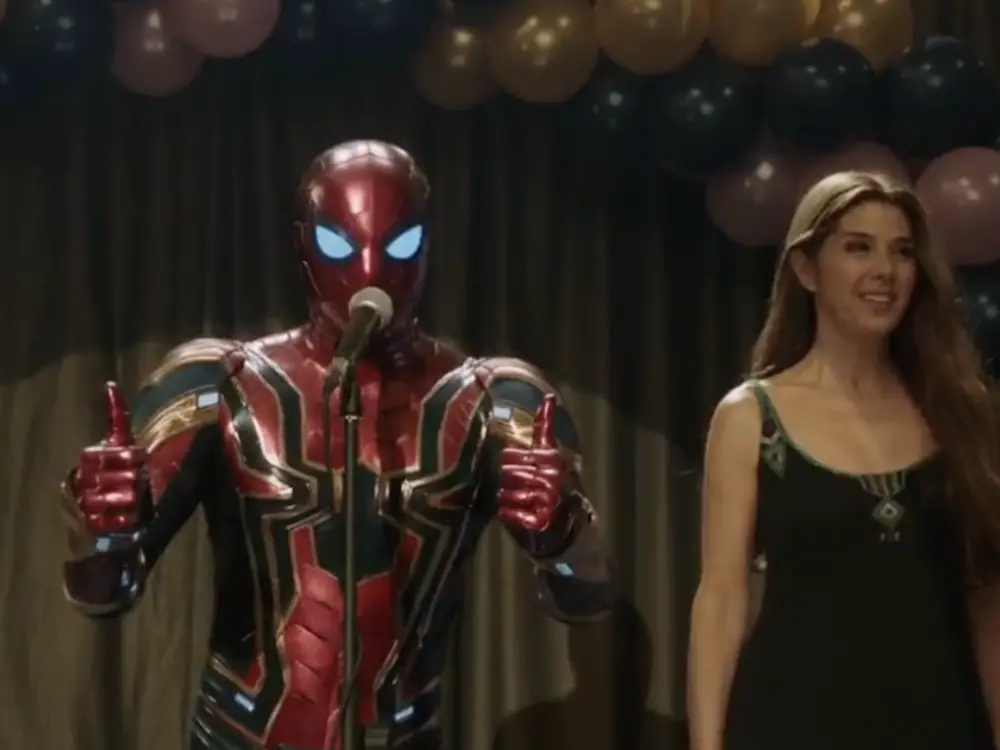The rumors swirl, the fans speculate nonstop and every comment from the creators sends the internet into a frenzy — you can thank the recently released trailer for the madness. “Spider-Man: No Way Home” contains excitement that can only be compared to some of the best-selling movies of all time. While this excitement seems justified, the upcoming release of this movie begs a few questions about Spider-Man’s adventure through the Marvel Cinematic Universe (MCU) so far. Many are enamored by the spectacle of the next film and perhaps that makes them somewhat blind to the actual character development that has occurred thus far with Tom Holland’s Spider-Man. This story of multi-versal mayhem will surely be incredible, nostalgic and the most creative Spider-Man movie yet. But am I the only one who feels like the MCU’s Spider-Man is missing something?
Spider-Man’s entire character generally revolves around one attribute: relatability. Stan Lee, the creator of Spider-Man, once pointed to this as the reason why he gave Spider-Man a mask. The character was meant to resonate with everyone, regardless of physical appearance. For decades, kids all around the world that eventually grew into adults made Spider-Man one of the most popular cultural icons to ever exist. They watch him struggle with poverty, school, bullying, family, stress and love as he chooses to be good, no matter what. He always experiences something that every person on Earth feels to some degree, and that’s why he’s such a legendary character. But that’s precisely what the MCU’s Spider-Man lacks. Throughout his appearances, he becomes drastically less “friendly-neighborhood” and strays quite far from the classic traits of the original character.
In the beginning, the MCU Spider-Man followed the right track with his first appearance in “Captain America: Civil War.” His character felt perfectly articulated in the first scene where Tony Stark confronts him about being Spider-Man and tries to recruit him for his cause against Captain America. In just the first few minutes of being on screen for the first time, Holland’s Peter Parker shows how he’s protective of his Aunt May, a genius by all accounts, a person who believes he has a responsibility to do good, and still just a nervous kid worried about fighting alongside the Avengers. Plus, he’s got homework. These traits truly reflect Peter Parker’s spirit, and it seems like from this moment forward the creators strayed further and further away from such perfect characterization.
The hero’s first MCU solo movie, “Spider-Man: Homecoming,” certainly had its bright spots where the spirit of Spider-Man shines through. One example of this occurs when Vulture reveals himself to be the father of Peter Parker’s homecoming date and slowly pieces together that the teenage kid is Spider-Man. However, some of the audience members didn’t enjoy the tone and certain tropes in the story, such as how Spider-Man essentially becomes Iron Man’s sidekick. The movie concludes with Parker denying Stark’s invite to the Avengers and wraps up the point of the film: Peter Parker is still a kid. He’s a friendly neighborhood Spider-Man and didn’t need to be anything more.
“Avengers: Infinity War” immediately contradicts “Spider-Man: Homecoming.” Within minutes of Spider-Man’s appearance, he enters space on his way to fight one of the most powerful beings in the galaxy and gets deemed an Avenger. Throughout his second film, “Spider-Man: Far From Home,” his close association with Iron Man continues as he receives access to thousands of super-powerful Stark satellites. Not only that, he must fight Mysterio alongside Iron Man’s close colleague, Nick Fury. The essence of Spider-Man’s character wavers throughout his time as part of the MCU. There isn’t even a scene of him web-swinging through the city until the post-credits scene of “Spider-Man: Far From Home.” This version of Spider-Man exhibits no relatability. As the story of Spider-Man continues to unravel, it becomes worrisome that this theme may continue.
Spider-Man will take on the Sinister Six in a team-up with Doctor Strange and (potentially) previous incarnations of the web-slinger. But it doesn’t feel like we’ve experienced enough moments of Spidey as a kid just trying to do the right thing. Just a short amount of time after he refuses to be an Avenger, he becomes one of the leaders for the Avengers with little to no triumph outside of defeating villains. “Spider-Man: No Way Home” will be the least friendly neighborhood Spider-Man movie yet. It seems as though it will take place throughout the multiverse and far from anything that resembles the audience’s reality. And it’s not that all of this shouldn’t happen; it just all changed far too quickly.
Imagine an MCU version of Spider-Man where he is truly the child of the group: a struggling high school student from Queens just trying to help people, protect his family and get by. While Holland’s version of Spider-Man is certainly the flashiest, it lacks the depth that other Spideys had. The spirit and relatability seemed to be missing from the character for a while now, and it raises concerns that Marvel may be doubling down on Spidey as a primary Avenger instead of a relatable kid.
The MCU Spider-Man trilogy would be great if “Spider-Man: No Way Home” concluded with a grounded, gritty story of Spider-Man battling a villain who threatens what Peter Parker loves. Spider-Man doesn’t need to be in the Avengers, nor does he need to be in space battling the likes of Thanos. He shouldn’t be traveling through the multiverse quite yet, and he isn’t the next Iron Man. Spider-Man represents the average kid, and the world will always love him for being just that. There is no need to change what isn’t broken. Although everyone is excited for “Spider-Man: No Way Home,” one can’t help but have these wishful thoughts about what Spider-Man could have been in the MCU.

















